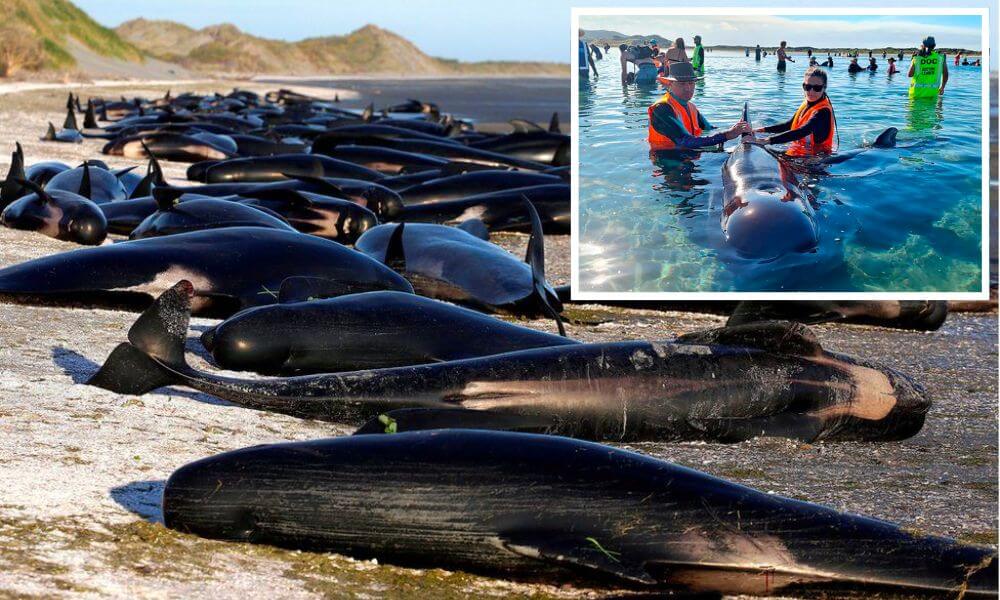More than 200 whales stranded on a secluded beach in New Zealand on Saturday have refloated themselves and returned to sea.
Conservation officials, however, have cautioned that they may yet return to the beach at Farewell Spit on South Island.
Earlier, volunteers were able to refloat 100 of the over 400 pilot whales that beached on Thursday.
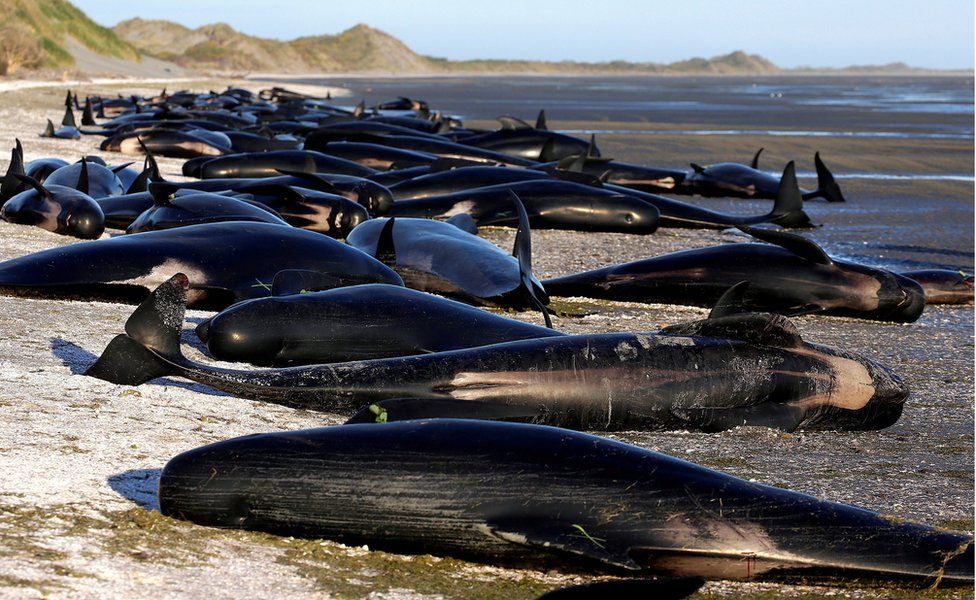
A human chain, with volunteers wading neck-deep in the ocean, failed to stop a new pod from making ashore.
“The 240-odd whales that stranded between Puponga and Pakawau late Saturday have mostly refloated themselves on last night’s high tide and are roaming around in shallow water,” said Herb Christophers, a conservation official.
Seventeen of the remaining stranded were refloated by rescuers and volunteers working on the spit.
Project Jonah, an environmental organization cooperating with the rescue, has a plane hovering over the area to track the whales’ movements.
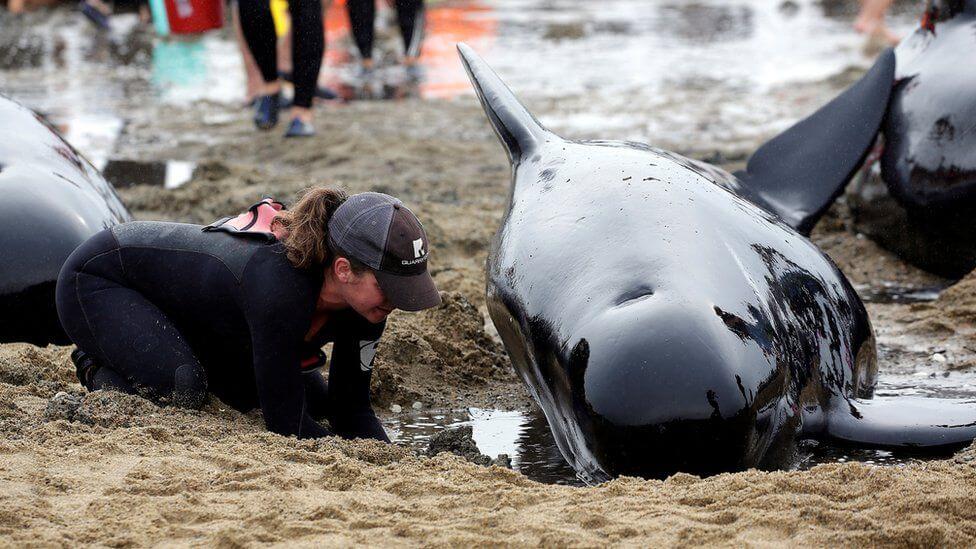
The whale stranding is one of the worst in New Zealand’s history. Since the event was originally reported on Thursday, dozens of volunteers have arrived to assist.
More than 300 of the 400 initial arrivals died, as medics and members of the general public attempted to save survivors by chilling them with water.
It’s unclear why the pilot whales, which are technically members of the dolphin family, keep showing up on the 5km (three-mile) beach near Golden Bay.
According to one explanation, sharks drove them onto land after bite marks were discovered on one of the deceased whales.
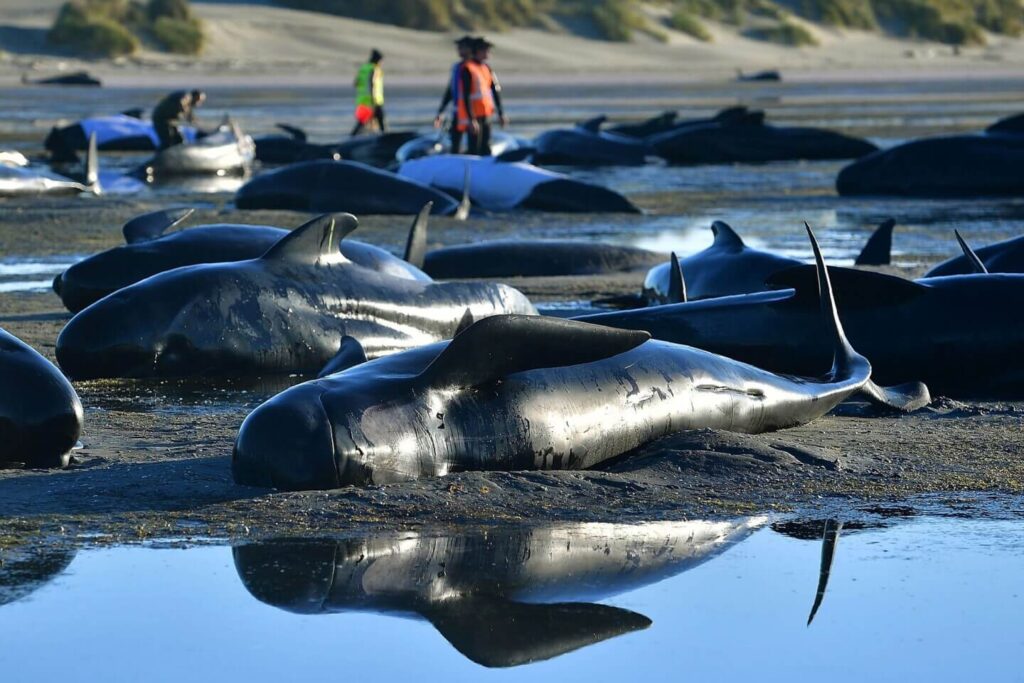
According to Mr. Christophers of New Zealand’s Department of Conservation, the whales were attempting to navigate their way around the top of South Island, but if their navigation failed, they ended up on the beach.
The animals’ use of echolocation was hampered in shallower waters.
“If you get lost in there and you’re a whale, it’s a pretty challenging area,” he remarked.
According to experts, whales that become stranded will send out distress signals, attracting other members of their pod, who would then become stranded by a retreating tide.
The whales are sometimes merely elderly, sick, or damaged.
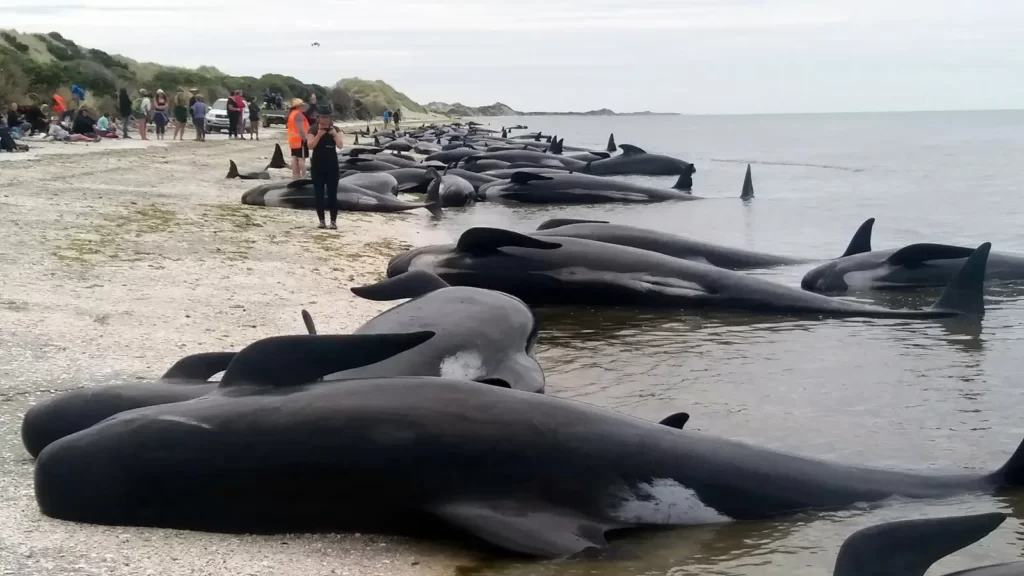
According to Andrew Lamason of New Zealand’s Department of Conservation, those refloated were tagged, however the most recent arrivals were not, indicating that they were a new cohort.
He said conservationists had compassionately killed 20 whales since they were in terrible condition.
Officials are also investigating the best way to dispose of the whale remains.
Towing them out to sea, according to Mr Lamason, might be troublesome because they could become gaseous and buoyant and float into populated bays.
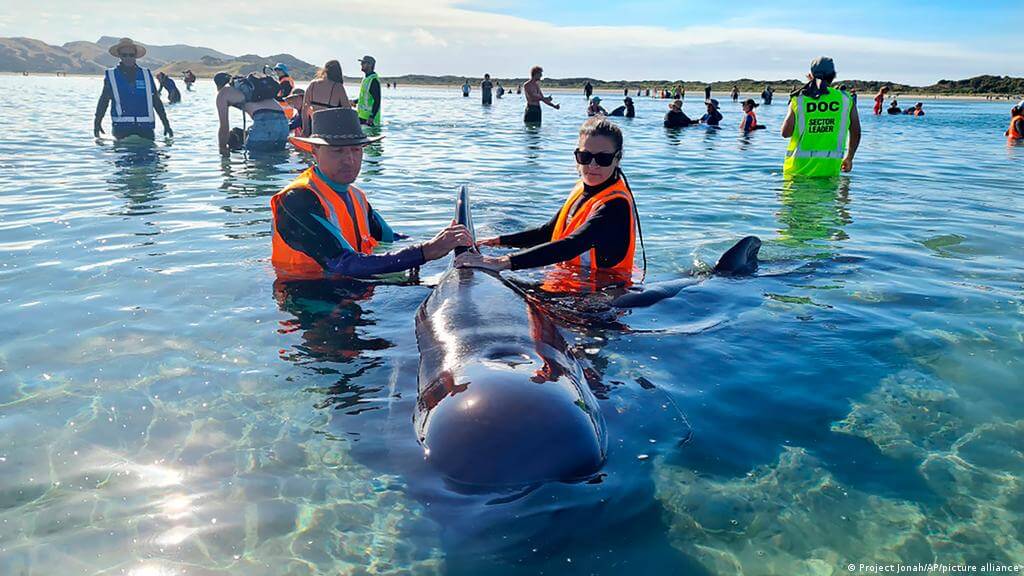
The newest incident in New Zealand was reported on Thursday evening, but the conditions were too risky to initiate a rescue mission at the time.
According to Project Jonah, New Zealand has one of the highest stranding rates in the world, with over 300 dolphins and whales washing up on beaches each year.
Many of these occurrences occur near Farewell Spit.
A kind-hearted tourist in New Zealand helped reunite a stranded Orca with his family.
